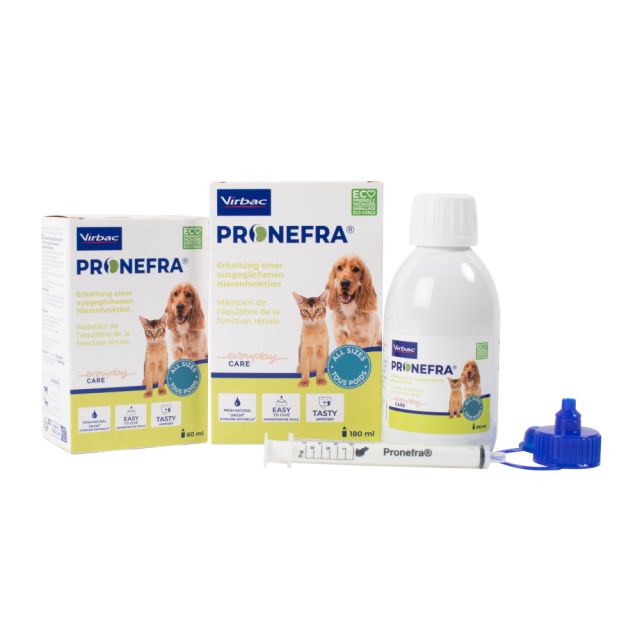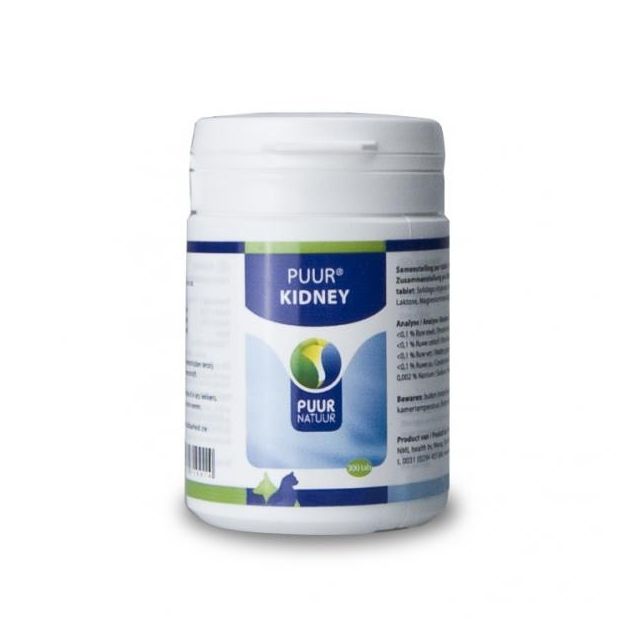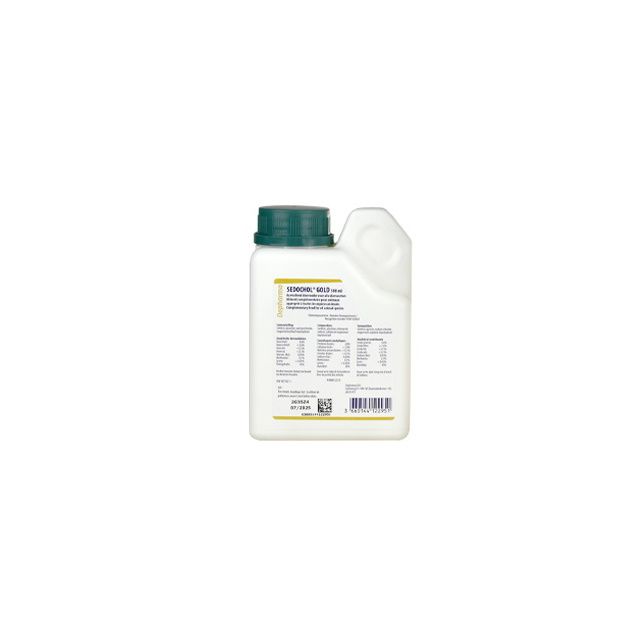Kidney failure in dogs
What are kidney problems?
When a dog's kidneys work less effectively over a short or longer period, this is referred to as kidney problems. A kidney is very capable of compensating for reduced kidney function, which is why kidney failure is often only diagnosed at a late stage. Kidney failure can be acute or chronic. Acute kidney failure is sometimes reversible with intensive treatment, but unfortunately, chronic kidney disease cannot be cured. Fortunately, dogs with chronic kidney disease can be well supported with special diets or supplements. Pharmacy4pets helps to maintain the best possible quality of life for your dog with kidney failure for as long as possible.
How do a dog's kidneys work?
The main function of the kidneys is to filter the blood, thereby removing waste products. In addition, the kidneys regulate the body's fluid, salt, and mineral balance. Finally, the kidneys are involved in the production of several hormones (including erythropoietin, or EPO) and in regulating blood pressure and the acidity of the blood. When kidney function is insufficient, waste products will accumulate, and the urine will not be properly concentrated (very watery). In addition, blood pressure will become unregulated, and anemia can occur due to reduced production of the hormone EPO.
What are the main causes of kidney problems?
There are many known causes of reduced kidney function. These causes can be divided into causes within the kidneys and causes outside the kidneys:
Causes within the kidneys:
- Aging.
- Pyelonephritis (kidney pelvis inflammation).
- Congenital and hereditary abnormalities of the kidneys (for example, amyloidosis, polycystic kidney disease (PKD), insufficiently developed or incorrectly formed kidney).
- Tumors, such as lymphoma.
- Kidney stones.
Causes outside the kidneys:
- 'Foreign diseases' (parasites that are common in southern countries).
- High blood pressure.
- Diabetes.
- Infections/inflammations in other parts of the body (for example, the teeth, the pancreas, or the uterus).
- Blockage of the urethra by bladder stones or bladder grit.
- Poisonings (for example, grapes, antifreeze, ibuprofen).
- Immune diseases.
What are the symptoms of kidney problems?
The most common symptoms of kidney problems are drinking a lot and urinating frequently. With reduced kidney function, the kidneys can no longer concentrate the urine properly. To compensate for the loss of fluid through the kidneys, your pet will also drink a lot. However, in some cases of acute kidney failure, it may happen that your pet produces no urine at all. This is an emergency!
The accumulation of waste products such as urea and creatinine causes symptoms like poor eating, nausea, and vomiting. Sometimes ulcers can also form in the oral cavity. Pyelonephritis often shows symptoms of a urinary tract infection in the early stages: frequent small urinations, difficulty urinating, blood in the urine, foul-smelling urine. Severe kidney problems can also lead to anemia due to reduced production of the hormone EPO. Finally, a generally poor condition with symptoms such as weight loss, muscle loss, and a dull coat is often seen.
What can I do if my pet has kidney problems?
If you suspect that your pet has a kidney problem, it is always advised to go to your veterinarian. Depending on the severity of the kidney problem, it may be necessary to treat your pet with medication and an IV. In addition, you can support your pet with the following measures:
- Ensure your pet can drink enough to prevent dehydration.
- Put your dog on a special kidney diet. In an animal with reduced kidney function, waste products such as urea and creatinine accumulate. By providing a kidney diet with adjusted proteins and phosphate levels, you can support the kidneys as optimally as possible. Animals with kidney disease are often nauseous and do not always have a good appetite. If they do not want to eat the kidney diet, feel free to give them something else. It is always more important that a kidney patient eats, rather than what they eat. With a good appetite, a kidney diet is really a very good contribution to maintaining a good quality of life for as long as possible.
- Should a kidney diet be insufficient in reducing the phosphate levels in the blood, phosphate binders such as Ipakitine or Pronefra can be used.
It is important to recognize the symptoms of kidney disease in dogs at an early stage. Fortunately, acute kidney failure is often curable. Unfortunately, chronic kidney disease cannot be cured, but with timely support with diet food, dietary supplements, and sometimes medication, your dog can often still lead a happy life for quite some time.
If you have a question about our products or about kidney failure in dogs, please contact us.





